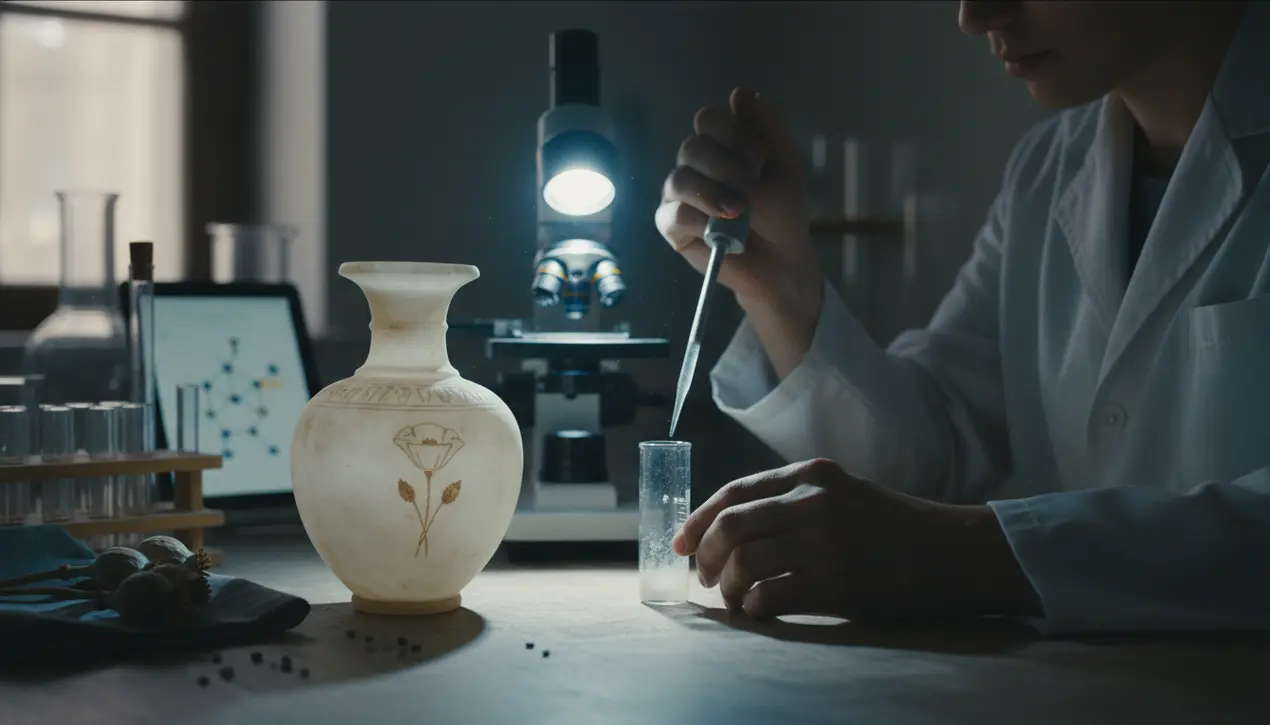
SciencearchaeologyExcavations and Discoveries
Ancient Egyptian Vase Shows Opium Use.
RA
Rachel Adams
3 hours ago7 min read
In a discovery that fundamentally alters our understanding of ancient rituals, scientific analysis of a 2,500-year-old Egyptian alabaster vase has confirmed the presence of opium residue, specifically identifying well-known diagnostic biomarkers for the substance. This isn't merely an archaeological footnote; it's a profound window into the spiritual and medicinal practices of one of history's most sophisticated civilizations, forcing us to reconsider the delicate interplay between humanity and psychoactive plants.The vessel itself, a beautifully crafted piece likely used in ceremonial contexts, was subjected to advanced organic residue analysis, a technique that acts like a chemical time machine, allowing researchers to pinpoint the exact compounds stored within it millennia after its last use. The findings robustly indicate that the ancient Egyptians were not only familiar with the opium poppy, Papaver somniferum, but were actively incorporating its potent extracts into their culture, potentially for pain relief, as an offering to gods like Seshat or Osiris associated with sleep and death, or to induce altered states of consciousness during religious rites.This revelation connects to a broader ecological and anthropological narrative about how ancient societies harnessed and were shaped by their natural environment, sourcing powerful botanicals and integrating them into the very fabric of their societal and spiritual life. Experts in archaeochemistry suggest this practice might have been part of a complex trade network, linking Egypt to the Eastern Mediterranean where poppies were cultivated, highlighting an early form of globalized knowledge exchange.The implications are staggering, drawing a direct, tangible line from the sacred rituals along the Nile to the modern-day opioid crisis, reminding us of the enduring and double-edged relationship humanity has with nature's pharmacy. It underscores a timeless truth: our quest to alleviate suffering and transcend ordinary experience is as old as civilization itself, yet it carries inherent risks that have echoed through the ages, a poignant lesson from the past that resonates with urgent, contemporary relevance in our own struggles with substance use and ecological stewardship.
#archaeology
#ancient egypt
#opium
#alabaster vase
#organic residue
#chemical analysis
#featured
Stay Informed. Act Smarter.
Get weekly highlights, major headlines, and expert insights — then put your knowledge to work in our live prediction markets.
Comments
Loading comments...
© 2025 Outpoll Service LTD. All rights reserved.